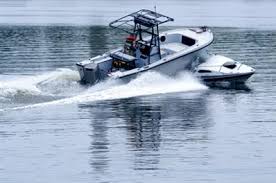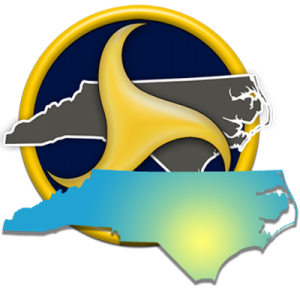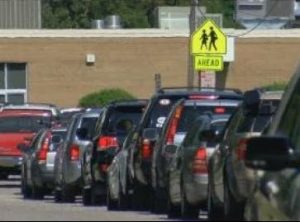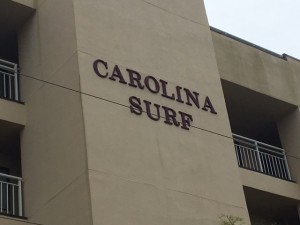Hurricane Florence Recovery: I-40 reopens from Raleigh to Wilmington
September 28th, 2018![]() For over 10 days after Hurricane Florence made landfall at Wrightsville Beach, NC, Interstate I-40 was closed in sections from Wilmington to Raleigh. Now, as of September 25, 2018, people can drive the entire length of interstates 95 and 40 through North Carolina.
For over 10 days after Hurricane Florence made landfall at Wrightsville Beach, NC, Interstate I-40 was closed in sections from Wilmington to Raleigh. Now, as of September 25, 2018, people can drive the entire length of interstates 95 and 40 through North Carolina.
News outlets reported that North Carolina Governor Roy Cooper said floodwaters receded over this past weekend faster than expected, allowing N.C. Department of Transportation crews to inspect and open both highways by Tuesday morning. The opening of I-40 through Duplin and Pender counties restored the main route in and out of Wilmington to I-95. Wilmington was completely landlocked for several days because of floodwaters due to Hurricane Florence.
On September 15, 2018, I-95 was closed in parts of NC, and travel up and down the East Coast was disrupted. At one time, the recommended detour was to drive completely around North and South Carolina, through Knoxville, TN and Atlanta, GA.
As the Lumber River and Cape Fear River receded after the storm, I-95 dried out on Sunday, and NCDOT engineers inspected it to see if it was safe to use. DOT personnel found one area that needed repairs which were promptly completed.
Other roads that reopened Monday are the U.S. 70 Bypass at Kinston and U.S. 74 between I-95 near Lumberton and Wilmington.
Governor Cooper urged people to obey road closure signs and not to drive around barriers into flood waters. He said that as of September 24, the death toll from the storm had risen to 35 in North Carolina, and that some of those deaths had resulted from people driving into floodwaters.
In the Outer Banks, N.C. 12 on Ocracoke Island is closed. It could take until the end of October to have repairs to erosion of the dune and damage to the pavement that make the road impassable repaired. Until repairs are completed, the ferry between Hatteras and Ocracoke is closed.
Recovery efforts continue. The New Hanover County Courthouse re-opened on Monday, September 24th. However the Brunswick County Courthouse and the Pender County Courthouse remain closed indefinitely.
Pender County estimated that about 25 percent of the county flooded, closing major highways and submerging many homes. Due to flooding, the county remained landlocked for over a week and many residents were forced into emergency evacuations. Last week water spilled over into the road and washed out parts of U.S. 421, washing out the entire highway across all four lanes. The emergency manager for Pender County said it could take months to re-open that route back into Wilmington.
Be safe as our community recovers from this historic storm. If you or someone you know are in need of legal services in the Wilmington area, call Collins Law Firm for a confidential consultation at 910-793-9000.
By David B. Collins, Jr.

 Maritime law, better known as Admiralty law, is a body of law concerning behaviors and activities on the sea. Admiralty law governs the interactions of those who conduct business on the water. Primarily the focus is on international waters, but laws are applied to waters in and around each country.
Maritime law, better known as Admiralty law, is a body of law concerning behaviors and activities on the sea. Admiralty law governs the interactions of those who conduct business on the water. Primarily the focus is on international waters, but laws are applied to waters in and around each country. In North Carolina, driving is a privilege. Some drivers however put themselves and others in danger by disregarding traffic laws and driving dangerously, negligently or carelessly. Such driving behavior is an abuse of one’s driving privilege and may result in the loss of said privilege. The temporary loss of one’s driving privilege is called suspension. Upon successful completion of the terms of the suspension, one may get their driving privilege reinstated. Some offenses however, warrant one’s driving privileges to be terminated. This is called revocation. Upon a revocation, one must meet eligibility requirements in order to get their license reinstated and may need to have an administrative hearing. Once found eligible, one will need to reapply for a driver license at a driver license office.
In North Carolina, driving is a privilege. Some drivers however put themselves and others in danger by disregarding traffic laws and driving dangerously, negligently or carelessly. Such driving behavior is an abuse of one’s driving privilege and may result in the loss of said privilege. The temporary loss of one’s driving privilege is called suspension. Upon successful completion of the terms of the suspension, one may get their driving privilege reinstated. Some offenses however, warrant one’s driving privileges to be terminated. This is called revocation. Upon a revocation, one must meet eligibility requirements in order to get their license reinstated and may need to have an administrative hearing. Once found eligible, one will need to reapply for a driver license at a driver license office. Pursuant to North Carolina General Statute § 20-135.2A, all passengers in a vehicle are required to be properly restrained and violations are punishable by fines of currently up to $179.
Pursuant to North Carolina General Statute § 20-135.2A, all passengers in a vehicle are required to be properly restrained and violations are punishable by fines of currently up to $179. The North Carolina Department of Transportation (NCDOT) is one of the state’s largest agencies and its responsibilities include building, repairing, and operating all kinds of transportation within the state of North Carolina – i.e. highways, railroads, aviation, ferries, public transit, bike paths, and pedestrian walkways.
The North Carolina Department of Transportation (NCDOT) is one of the state’s largest agencies and its responsibilities include building, repairing, and operating all kinds of transportation within the state of North Carolina – i.e. highways, railroads, aviation, ferries, public transit, bike paths, and pedestrian walkways. An 81-year-old woman ticketed for passing an idling line of cars in order to access her own driveway got a break in court, after an attorney saw her story on WECT and offered to represent her for free.
An 81-year-old woman ticketed for passing an idling line of cars in order to access her own driveway got a break in court, after an attorney saw her story on WECT and offered to represent her for free. Sunday, October 1, 2017, Stephen Paddock carried out the deadliest mass shooting in U.S. history. We extend our deepest sympathies to the victims and their families of this unbelievable tragedy.
Sunday, October 1, 2017, Stephen Paddock carried out the deadliest mass shooting in U.S. history. We extend our deepest sympathies to the victims and their families of this unbelievable tragedy. It happens so easily—one makes a bad choice, gets misunderstood, or falsely accused, and in the result faces criminal charges. Regardless of the outcome in a criminal matter—even in case of a wrongful criminal charge—the fact that one was criminally charged will result in a criminal record. Unless dealt with appropriately, a criminal record may create a virtuous circle and negatively affect one’s chances in the job market, in college applications, on the housing market, etc. In an attempt to mitigate or avoid negative consequences of one’s criminal record, one should consult with an attorney about whether or not they are eligible for an expunction of their criminal record and if eligible, pursue the expunction.
It happens so easily—one makes a bad choice, gets misunderstood, or falsely accused, and in the result faces criminal charges. Regardless of the outcome in a criminal matter—even in case of a wrongful criminal charge—the fact that one was criminally charged will result in a criminal record. Unless dealt with appropriately, a criminal record may create a virtuous circle and negatively affect one’s chances in the job market, in college applications, on the housing market, etc. In an attempt to mitigate or avoid negative consequences of one’s criminal record, one should consult with an attorney about whether or not they are eligible for an expunction of their criminal record and if eligible, pursue the expunction. On June 30, 2017, the Star News reported that the Carolina Surf condominium complex in Carolina Beach was condemned and an evacuation was ordered after an engineer found serious structural deficiencies in the building, which could cause its collapse. This was according to a news release from Assistant Town Manager Ed Parvin.
On June 30, 2017, the Star News reported that the Carolina Surf condominium complex in Carolina Beach was condemned and an evacuation was ordered after an engineer found serious structural deficiencies in the building, which could cause its collapse. This was according to a news release from Assistant Town Manager Ed Parvin. This holiday season AAA is expecting 103 million Americans to travel, which is nearly 1.5 million more people than last year. While many people choose to fly to their Christmas destinations, AAA is predicting that more people will be driving this year than previous years. It is very important that those driving, no matter the distance, are prepared for their travel. Make sure you’ve recently gotten an oil change, check your tires to make sure they have the right pressure, never let your gas tank get below ¼ of a tank while traveling, and secure all luggage in your car.
This holiday season AAA is expecting 103 million Americans to travel, which is nearly 1.5 million more people than last year. While many people choose to fly to their Christmas destinations, AAA is predicting that more people will be driving this year than previous years. It is very important that those driving, no matter the distance, are prepared for their travel. Make sure you’ve recently gotten an oil change, check your tires to make sure they have the right pressure, never let your gas tank get below ¼ of a tank while traveling, and secure all luggage in your car.